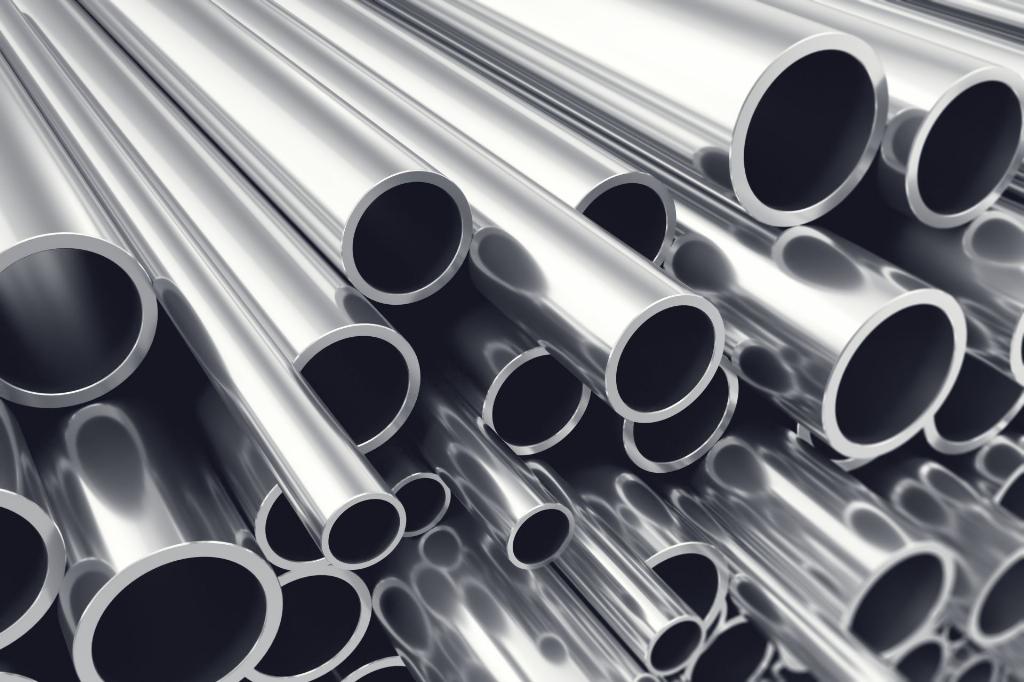September cover story: Living in a material world

Establishing optimum levels of stock is a conundrum that every manufacturing company faces on a daily basis. It’s a fine balance between having enough to keep customer orders fulfilled, but not overdoing it and having to pay for – and store – materials you don’t need. Paul McFadyen, managing director of metals4U reports.
Establishing optimum levels of stock is a conundrum that every manufacturing company faces on a daily basis. It’s a fine balance between having enough to keep customer orders fulfilled, but not overdoing it and having to pay for – and store – materials you don’t need. Paul McFadyen, managing director of metals4U reports.
Whatever line of business you are in, every company and sole trader needs to procure stock. The commodities and products required will vary between business sectors, but ultimately, goods out are directly controlled by goods in.
Ensuring your business has enough stocks of the right types of materials and products is crucial to the success of manufacture, however, understanding the best way to procure and hold stock for maximum productivity and profit is not always as easy it may seem.
Personnel costs, premises, and stock or raw materials, are usually the largest outlay of any business which is why it is so important to get these elements right. Looking at the long-term view, staffing costs are relatively predictable and scalable, site costs are mainly fixed, but getting your stockholding power right for your business can make the difference between hardship or success.
Flexing and honing your purchasing power will enable all savings you make to be passed on directly to your customers to attract more sales, or you can use the mark-up to increase the bottom line within your organisation.
There are four main ways to approach stockholding which are briefly outlined below.
Consignment stock
Businesses that need fast and responsive access to stock, but do not have the assets to bulk purchase, often go down the route of holding consignment stock. Their supplier owns the stock, but it is held and stored at the location, and at the cost, of the customer. This works well for many businesses as they have an assurance that a level of stock at an agreed price is available for a specified period of time. The customer pays for stock as they use it – a kind of pay as you go approach.

The benefits to the customer are that it fixes the price, reduces the risk of being left with surplus stock, increases possible turnaround and lead-times, and supply is assured and not affected by a fluctuation of availability. The points that need considering with this approach is that the cost of careful monitoring of stock to ensure security, storage and warehousing, and insurance, need to be factored into the budget.
Call off order
For medium- to long-term regular stock fulfilment, call-off orders provide a solution that streamlines many of the processes required for regular ordering. Stock price and amounts are negotiated and agreed on during the procurement process, then the goods are delivered to the customer’s site from the supplier as and when they are needed.
The benefit of call-off ordering is that it enables products to be delivered at intervals without the need to store surplus or commit to paying for goods up front. It also facilitates negotiation over bulk order pricing discounts and delivery charges.
A system such as this needs a good understanding of stock consumption to ensure ‘best fit’ amounts are ordered; the business will also require a strong balance sheet to make sure it can meet the long-term commitment of being tied into an agreement with a single supplier.
Accounting departments need to ensure they are aware of call-off orders to reduce issues further down the line (usually safeguarded by raising and signing off a purchase order), but this system does provide an element of security to know that spending is capped, and supply is assured.
Advance orders
Advance ordering can be an advantageous way to negotiate directly with a manufacturer or supplier to reduce the price per unit for goods. Manufacturers are often eager to negotiate on advance orders as it offers them the security that their goods (yet to be produced) are already sold, which lubricates the supply chain mechanism.
The advantage of advance ordering is that a business can be confident of maximising economy of scale modelling and having an assured stock supply. The gamble is also a little greater – a company has to have ‘bullet-proof’ monitoring and analysis of the products and amounts that they need or risk being stuck with surplus stock they cannot use or have to ‘sell on’ at a loss.
Other factors to consider are the cashflow implications of paying up front for goods that will not be received for several weeks or months, whether re-sale licences are required, and the cost implications of storage facilities and insurance.
On-demand
Regular ordering from a reliable supplier is the most frequently utilised stockholding option within the engineering industry. Some businesses may need to make one off purchases for a particular commission, others will regularly submit orders in response to diminishing stock to ensure they always have a good level of materials without the need to tie up capital and storage facilities accommodating consignment stock, advance orders, or call-off.
The real benefits of on-demand ordering for stockholding is that is provides a flexible approach to purchasing; small amounts of a little used product can be ordered alongside huge quantities of an extensively used one.
Know your stock
The business model we use at metals4U has been designed with the engineering and manufacturing markets at its core. Our on-demand selling model assures the innovation and reliability demanded in a fast-paced market is met; custom cutting on all our metal and engineering plastics is available at no charge to our customers to reduce waste and save time, next day delivery options are available, clear fixed pricing, and a comprehensive range of profiles, tools, and consumables.
Depending on the size and preferred business model of your organisation, which form of stock holding and purchase route you choose will largely be shaped by scale of enterprise, cashflow, and available capital; but there are some simple factors that can help you get the most power from your stockholding opportunities.
The most important factor is to ensure you really know and understand your stock use. This is not just a matter of monitoring it, but really getting to grips with the data every receipt, invoice, and sale presents. Once you have a clear understanding of every material and product you use, why you use it, and most importantly how much you use and when, it will be much easier to track your spending on materials.

The alignment of clear understanding of use against spending will highlight where savings can be made. It may become evident for one business that advance ordering is the only way to ensure maximum savings and availability of a particular material, while another may find a combination of advance, call-off, and on-demand is the perfect way to dovetail financial concerns, access to goods, and flexibility in purchase amounts and products.
Over the next few months, the engineering industry is certain to have some winners and losers as Brexit trade deals and COVID-19 continue to buzz around us. The best way to create breathing space and build profits is to make your business capital work harder for you; the more you understand the needs of your business, the easier those spending choices will get.
Metals4U was founded in 2002 as the UK's first online supplier of metals, plastics, tube clamps and engineering consumables. The company is now an industry leader in the supply of superior quality grades of steel, copper, bronze, and brass, power and hand tools, PPE, workwear, and engineering products.
Its large depot in Wetherby enables the business to carry exceptionally high levels of stock to ensure that over 95% of its products are delivered to customers the next working day.
metals4U www.metals4u.co.uk













